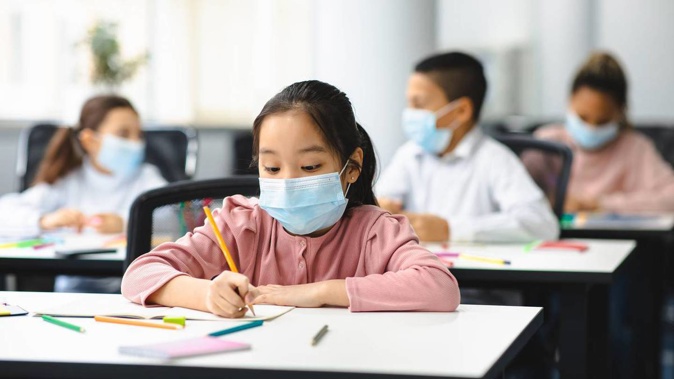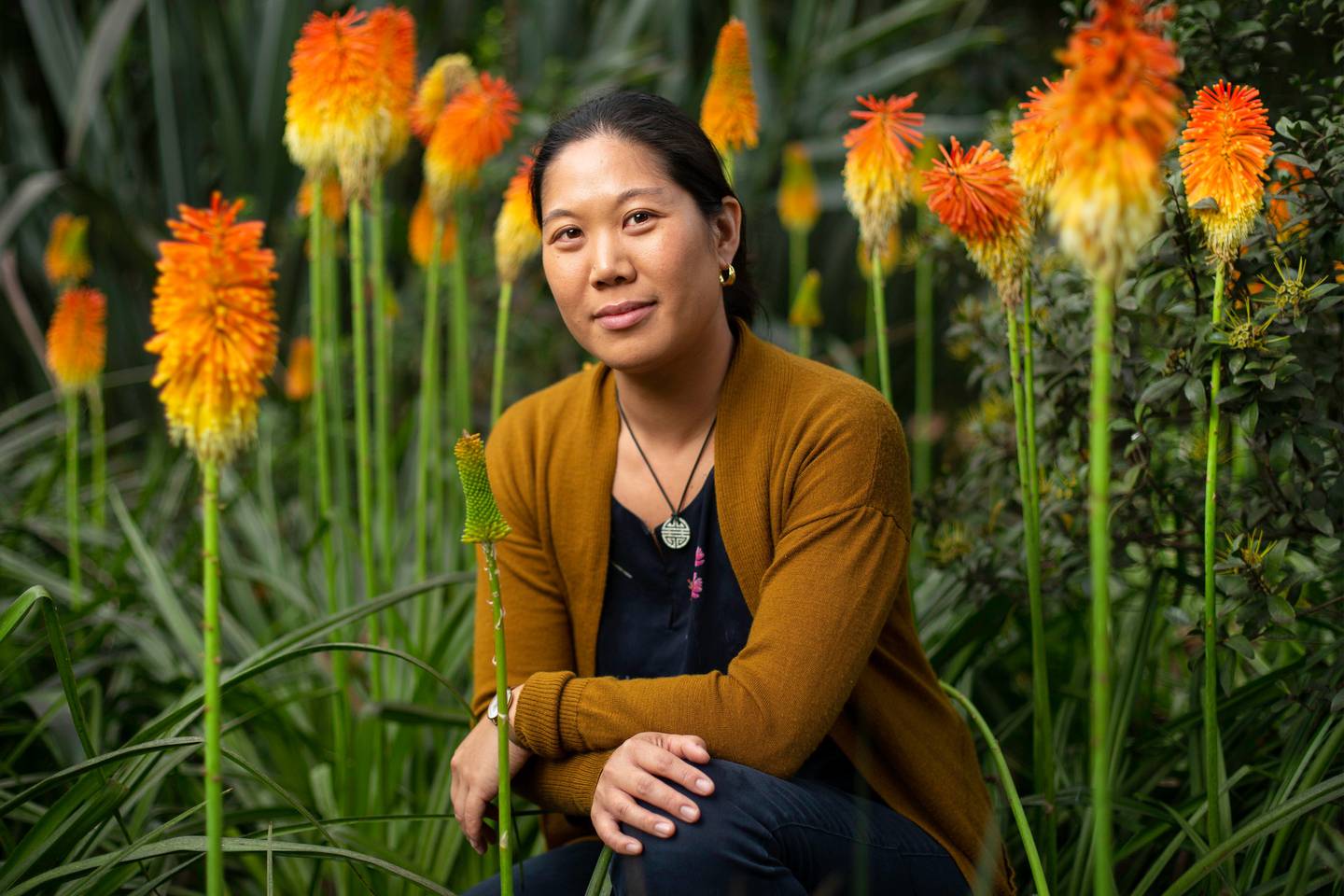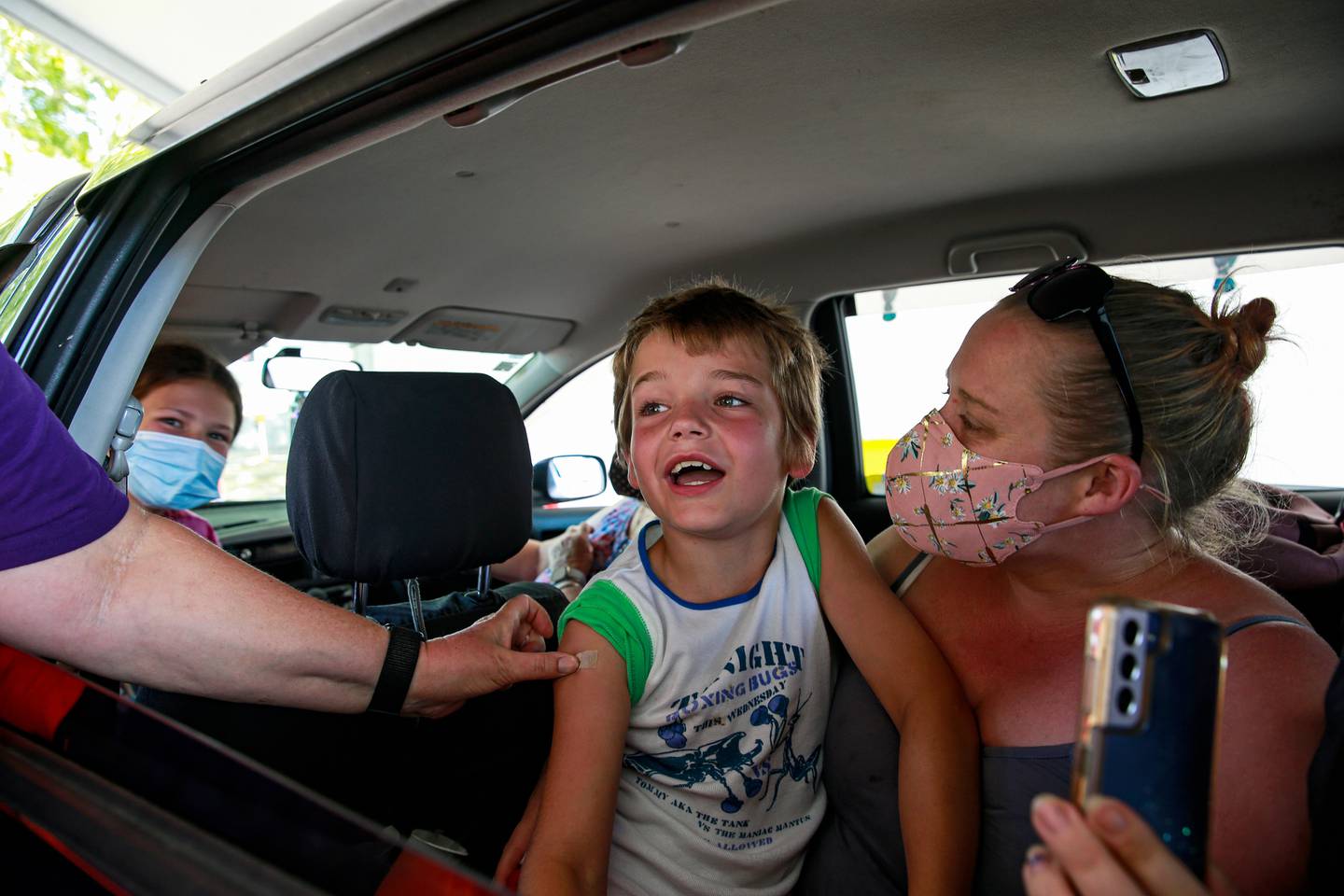
Child health experts say closing schools should be the very last resort in an Omicron outbreak, especially while other higher-risk locations stay open.
A new report from 10 respected New Zealand paediatricians says we need to calculate Covid risks differently for children – balancing the direct harm of infection with the many indirect harms they suffer from the pandemic.
Education Minister Chris Hipkins has made it clear he wants schools to stay open this year if at all possible.
But the paediatricians warn if the Government doesn't clearly communicate to all parents that school is low-risk, many will still keep their children at home – with long-term harms to kids who are already at a disadvantage.
The report was written by 10 of New Zealand's foremost paediatric experts including Starship developmental paediatrician Dr Jin Russell and experts in Māori and Pasifika health including Dr Rawiri McKree Jansen.
It says many of the pandemic's indirect harms have come amid school closures and lockdowns, including poorer mental health, loss of learning and relationships, poverty, overcrowding, and worryingly high rates of family violence and abuse.
Those harms could have life-long impacts, and they weren't evenly spread – Māori and Pasifika children and those who already suffer disadvantage would be hit hardest, the report said.
Schools were not a high transmission risk compared with places like restaurants, churches or workplaces – and they were an essential service for children, it said. So, they should not be closed while other, higher-risk places stayed open.
But whole school closures could be hard to avoid during a localised lockdown, or if large numbers of teachers were sick or isolating. When this happened, the focus would need to be on equity.
"Students from disadvantaged homes may not have access to the devices needed to participate in online learning, and these same students are also at higher risk of infection or isolation, due to inequitable community spread."
The group also called for fresh thinking about how to keep children engaged with learning and seeing friends if schools closed. They suggested schools could still host in-person outdoor sessions such as physical education, small-group learning sessions, or games for primary school children in case of an outbreak closing classrooms.
Opportunities to see friends and teachers would maintain relationships and engagement with school – with high benefits for very low risk.
Lead author Dr Jin Russell said as paediatricians the group had seen the indirect harms of lockdowns first hand, from children who ended up in hospital because of abuse, or were suffering from overcrowding and food insecurity.
School acted as a buffer for the most vulnerable children, with a safe environment and adults they could trust, she said.
Kids' vaccines, parent boosters 'most important thing for families'

Developmental paediatrician Dr Jin Russell says many of the harms suffered by children in the pandemic are "indirect" harms due to lockdowns and school closures. Photo / Supplied
The group doesn't downplay the direct harms that come from falling ill with the virus. But Russell said overall, children were at lower risk than adults.
"We're looking at a less severe [Omicron] variant, on top of lower background risk for children, and now with vaccinations to directly protect children," she said.
"The most important thing that families can do to get ready for school this year is to get their child's first dose of the Pfizer vaccination, and for parents to be boosted."
A first dose provided excellent protection for children against ending up in hospital, she said. A second dose locked in long-term immunity.
Russell said public health measures had previously aimed at protecting children from catching Covid-19; but the aim now would be to protect them from severe illness and hospitalisation.
"While children may catch Omicron, we expect that most of them will have a cough or cold, and they will recover at home and it will be very manageable at home. It's a small number of children who do need to be seen in hospital, and even then, the hospitalisations are brief."
Overseas there had been an uptick in kids in hospital with Covid but Russell said it appeared that was due to factors including higher case numbers overall, incidental admissions - where children were hospitalised for other reasons and then tested positive – and children being admitted with mild Covid as their parents were very sick and could not care for them at home.
"For parents who are worried about Long Covid and children, I'd say it appears to be less severe than adults and rarer. And children do seem to completely recover as well within a period of weeks, even when it happens."
Paediatric colleagues at Victoria's Royal Children's Hospital, which has a dedicated Covid follow-up clinic, had seen hundreds of children but had not seen a single clear case of long Covid in kids, Russell said.

Seth, 8, is pictured with his mum Michelle after getting his first dose of the Pfizer vaccine at the Wairau Valley vaccination drive-through. Photo / Alex Burton
Russell said it was understandable that some people were worried about their child bringing Covid home to a vulnerable family member, or that the child themself was particularly high risk.
Those kids who were higher risk - whether immunosuppressed or perhaps with a chronic lung condition – could get their second shot sooner.
"When you're looking at children who have pre-existing conditions each child is different. There are some children who have medical conditions which mean that they actually need to shield from school full-stop, even without the pandemic. So, there's no one size fits all."
The group also said mitigations like ventilation and mask wearing needed to be urgently optimised for Omicron, and for winter. Extra work was also needed to protect students in special schools, many of whom were higher risk students.
Mitigations might not stop all transmission but could prevent a proportion of class outbreaks and school closures, the paper said.
"Each day of in-person school time counts."
- by Dubby Henry, NZ Herald
Take your Radio, Podcasts and Music with you









